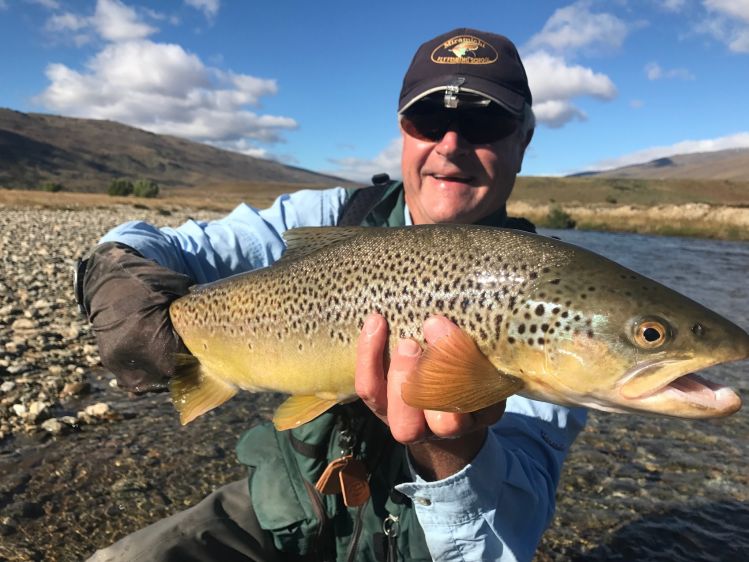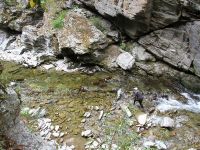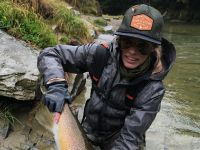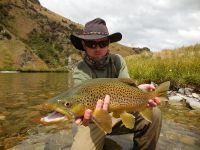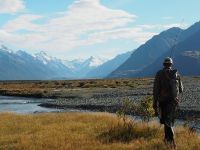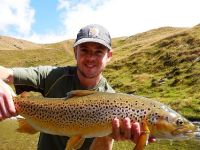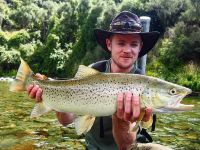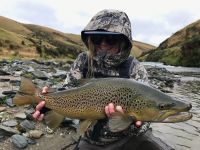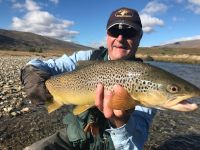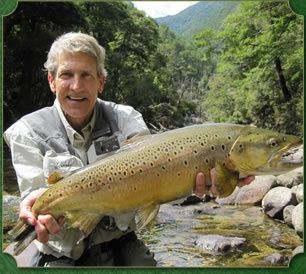From: 09/29/2017
To: 09/29/2017
Type of Water: Freshwater
Species: Rainbow trout, Brown trout
4 tips to prepare for your New Zealand Fishing Trip
Are you planning to make the trip to New Zealand this season? Would you like to try your hand at hunting down our elusive brown and rainbow trout amongst magnificent scenery and have a ball in the process? Well sorry to burst your bubble but its not as easy as it looks. Although in NZ we have arguably the best trout fishing in the world, we also like to think it is the most difficult you will ever experience. Yes the water is clear and you can see the monsters swaying in the depths, but these fish are more than likely the most intelligent and wary you will ever come across, they don’t get large by being dumb!
To get the most out of your fishing trip to NZ, preparation is key. The better prepared you are the better chance you will View more...4 tips to prepare for your New Zealand Fishing Trip
Are you planning to make the trip to New Zealand this season? Would you like to try your hand at hunting down our elusive brown and rainbow trout amongst magnificent scenery and have a ball in the process? Well sorry to burst your bubble but its not as easy as it looks. Although in NZ we have arguably the best trout fishing in the world, we also like to think it is the most difficult you will ever experience. Yes the water is clear and you can see the monsters swaying in the depths, but these fish are more than likely the most intelligent and wary you will ever come across, they don’t get large by being dumb!
To get the most out of your fishing trip to NZ, preparation is key. The better prepared you are the better chance you will have of success. Below are a few essential tips to help your preparation. All are important, but pick the ones you find most relevant and put your effort towards them.
1. Planning
When planning your fishing trip to NZ, first ask yourself what you hope to get out of your trip. Do you want lots of fish, or do you want the biggest fish? Do you want easy access, or strive for wilderness? Do you want to fish alone, or with a guide? Your expectations are what will dictate the outcome of your trip and are therefore important to discuss.
These questions will also help you decide which is the best area to plan your trip. For instance the North and South Islands offer very different experiences. Both have their own merits, but one may be more suitable for you than the other I wrote a blog about this in a previous post, check it out here
The time of year you visit will also dictate the type of fishing you will encounter. Generally speaking, in the early season you are fishing smaller waterways to less wary fish that are feeding on nymphs and the occasional dry. Mid summer brings on the famous Cicada and other terrestrial action, then late season provides some great mayfly hatches and fresh fish on spawning runs. Most of the time anglers are fitting fishing on the side of a trip around NZ, so do not have too much control over when they come. Understanding what you are likely to encounter will give you a better chance to prepare . I have written a blog series on each month of the season to help you better understand what to expect. You can see these in my previous posts.
2. Choosing a guide
If you have never fished in NZ before I would suggest that a guide is essential if you wish to get the most out of your trip. This doesn’t mean that fishing with a guide everyday is the only way to go. However, spending some time with one, particularly at the beginning of your trip will go a long way to improving your chances of success. It will also help you to actually enjoy your angling rather than being plagued by frustration.
The key to finding the right guide is finding the right one for YOU. Every guide brings their own methods and personality to the table. Regardless of how long they have been in the industry, you need to be sure that this is the person you would enjoy spending your day with. Get in touch with the guides you are considering, and have good chat with them. Whether that be over email, Facebook or phone, discuss your expectations and see how they respond.
Lastly, by law, guides in NZ do not have to be registered and/or certified to guide. This can be concerning for some anglers and therefore they can seek confidence in choosing a guide registered with the NZ Professional Fishing Guides Association (NZPFGA). All members of the NZPFGA are current with rules and regulations regarding first aid, health and safety and access rights to public conservation land. If your guide is not a member of the NZPFGA it is important to check they comply with these regulations.
3. Gear
Everyone wants to know what gear to bring and what flies suit best for NZ conditions. Although it does depend on where and when you will be fishing, there are a few general recommendations of gear that you will/won’t need when travelling to NZ as there isn’t any point in bringing 5 rods when you only use one!
Rods: Most guides will supply rod/reels for clients. However, if you wish to bring your own, the general rule of thumb is 5-6wt rods work in most conditions throughout the country. I prefer to use a 5wt wherever possible, however due to the nasty alpine winds in the south island, it is often unfeasible, especially early season. If you are only going to bring 1 rod, a 6wt will give you an all-round performance on most waters. If you want to only fish small lowland streams, you may even wish to go down to a 4wt, but I’ll stick to my 5wt
